In the wake of the assassination of General Qasem Soleimani, Article18 explains how his Revolutionary Guard Corps became one of the chief instruments of the regime’s ongoing repression of ordinary Iranians, including Christians.
Embed from Getty ImagesIt all changed on 19 October 2010, when Iran’s Supreme Leader, Ali Khamenei, listed the spread of house-churches among the “critical threats” facing the Islamic republic.
In that moment, the Supreme Leader had given the green light to his “guardians of the revolution” that here was another threat to be eliminated, in whatever way they saw fit.
Khamenei’s speech ushered in a decade of violent raids on house-churches across the country – the first taking place just two months later – as hundreds of new Christians were rounded up and taken in for questioning.
Why had they converted? Who was behind it? Were they working with America, or Israel?
The charges arrested Christians faced suddenly changed. They were now “actors against national security” and could be sentenced accordingly to up to ten years in prison. Many were, and continue to be.
There are currently at least 20 Christians behind bars in Iran on precisely such charges. Dozens more have gone before them. Many others have fled the country to escape a similar fate.
And behind it all are Ayatollah Khamenei’s most loyal servants, his chief protectors, the Revolutionary Guards, or “Sepah”, a corporation created in the early months of the revolution with the sole purpose of defending the new Iran, through whatever means necessary.
In the early years, as Iran fought an eight-year-long war with Iraq, the guards’ objective was clear: defend Iran’s borders.
But when the war ended, in August 1988, the future of this force had to be reimagined.
Soon, the guardians of the revolution became concerned with far more than only protecting the country against military invasion; its remit was expanded to include any perceived threat – from within or without Iran – against the Iranian regime and its objectives.
Khamenei coined the phrase “cultural invasion” to speak about the threats facing Iran from within. This was a phrase he used even before he became Supreme Leader, in his presidency, giving him the license to wage war against anything he considered to be a “foreign influence” – be it reformists or liberals within the regime, or anyone else who didn’t subscribe to his hardline take on Shia Islam.
And this desire to oppose any form of dissent from reformists – particularly during the rule of liberal president Mohammad Khatami from 1997 to 2005 – was strongly influenced by the Revolutionary Guards, including General Soleimani, who was among the signatories of a 1999 letter providing the president with an ultimatum to turn on his own student supporters, who were protesting, or the Revolutionary Guards would have to interfere.
Meanwhile, the guards began to exert their influence on an international stage, seeking to establish Shia supremacy across the region.
In the last decade alone, their Quds Force, led by the recently assassinated general, has wrought its influence throughout the Middle East by supporting its allies: from Hizbollah and Hamas in Lebanon and the Gaza Strip, to the Houthis in Yemen and other militias in Iraq and Syria.
But the force has also been responsible for tackling perceived threats at home, and ever since Khamenei’s October 2010 speech, Christians have been counted among them.
In July 2017, Iran’s Revolutionary Guards released photographs showing a hoard of Christian artefacts – including boxes of Bibles and worship CDs – apparently confiscated in recent raids, though without any clarification as to where or when the items had been procured.
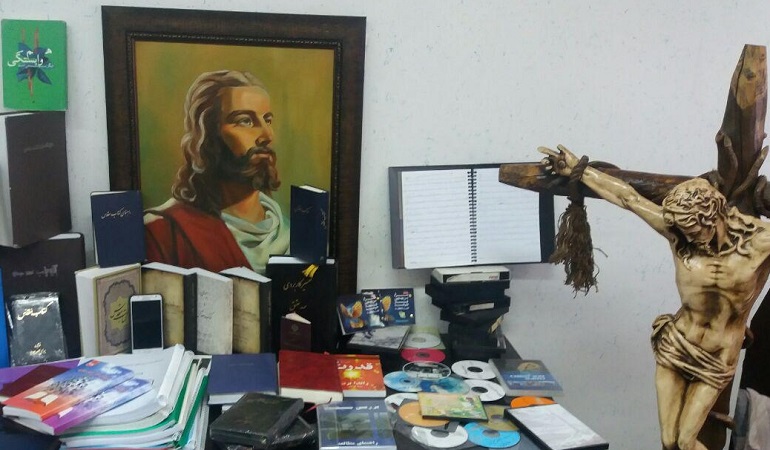
At the time, Article18’s Advocacy Director, Mansour Borji, told Christian news website World Watch Monitor that “one important factor in this story is that the news is published not by the judicial authorities or Ministry of Intelligence, but by the Revolutionary Guards, which is the military organisation responsible for maintaining state security.
“I think the bigger question is why this military institution now seems to be mandated with the responsibility to crackdown on house-churches, and why they blow the trumpet about the arrest of Christians and the confiscation of their religious material?
“Why would a secure and stable government be so troubled by New Testaments and books on Christian discipleship? How can they claim to have respect for the rights of religious minorities, and then parade Christian literature as evidence of criminal activity?”
Over the recent Christmas period, eyebrows were raised as senior Iranian officials including Ayatollah Khamenei, President Hassan Rouhani and Foreign Minister Mohammad Javad Zarif came forward, as usual, to wish Christians in Iran and elsewhere a “merry Christmas”. In the same month, the grave of the only Iranian Christian officially executed, by court order, for apostasy was being demolished.
These same figures have presided over the continuing crackdown on Christians in Iran, where only “recognised” Christians of Armenian and Assyrian origin are permitted to practise their Christian faith, and even they are treated as second-class citizens and prohibited from sharing their faith with others.
Only this week one of their number, Ramiel Bet-Tamraz, the son of an Assyrian pastor, began a four-month prison sentence issued to him because he had ignored this prohibition.
Ramiel’s parents, Victor Bet-Tamraz and Shamiram Issavi, are facing ten and five years in prison, respectively, because they too have refused to remain tight-lipped when asked about their faith by curious Muslim-born Iranians.
Iran is a signatory of both the Universal Declaration of Human Rights and the binding International Covenant on Civil and Political Rights, both of which provide for full religious freedom including the freedom to share one’s faith with others and to choose to change one’s religion.
However, despite its frequent claims to the contrary, Iran continues to deny these freedoms to its citizens, using the fearsome Revolutionary Guards as its chief weapon to be wielded against those who step out of line.
The Revolutionary Guards may have been helpful to the West in combatting terrorists abroad including the Taliban and ISIS, but the guards also continue to unleash a terror of their own on the Iranian people, including, but by no means limited to, its Christians.
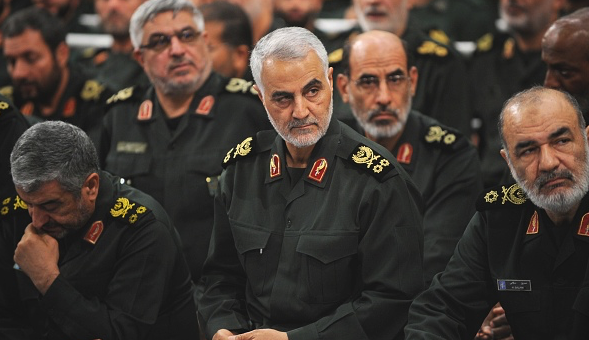
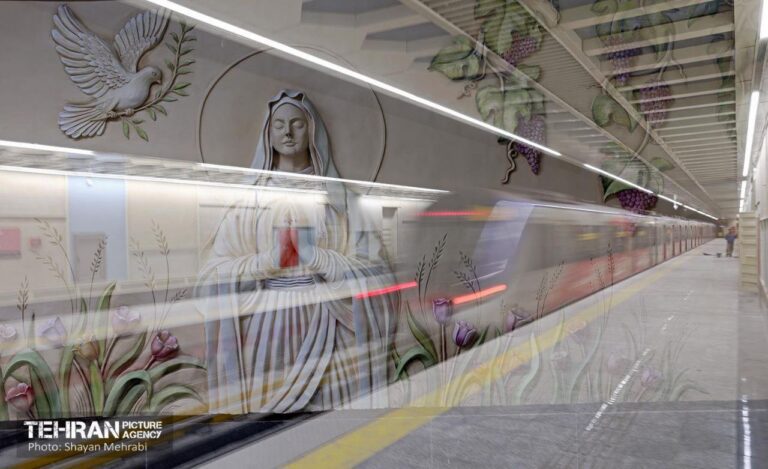
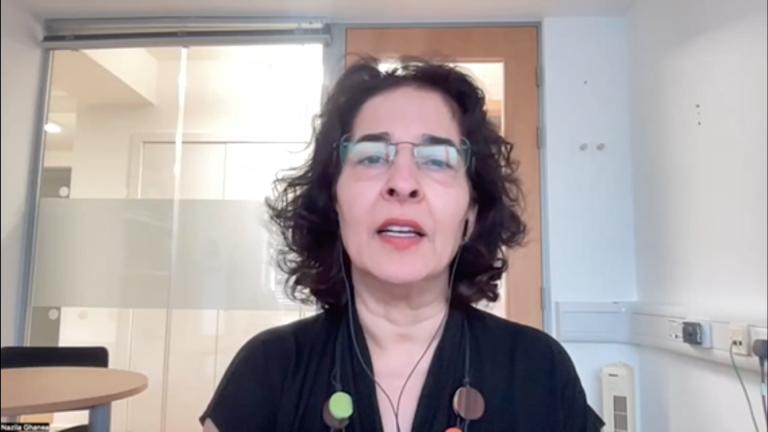
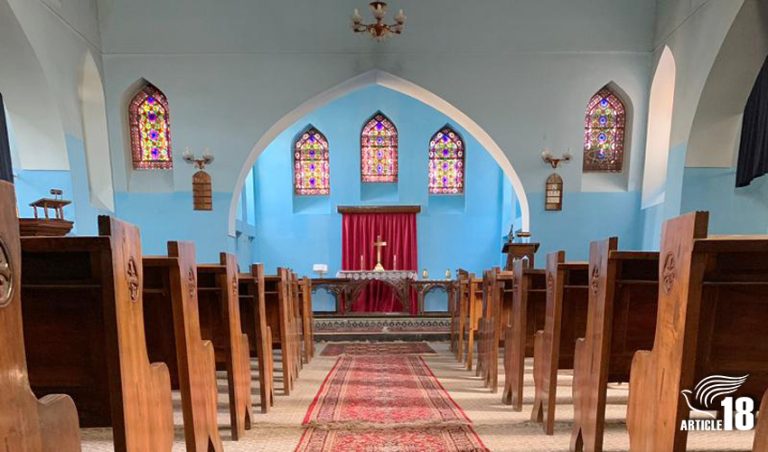
0 Comments
Trackbacks/Pingbacks